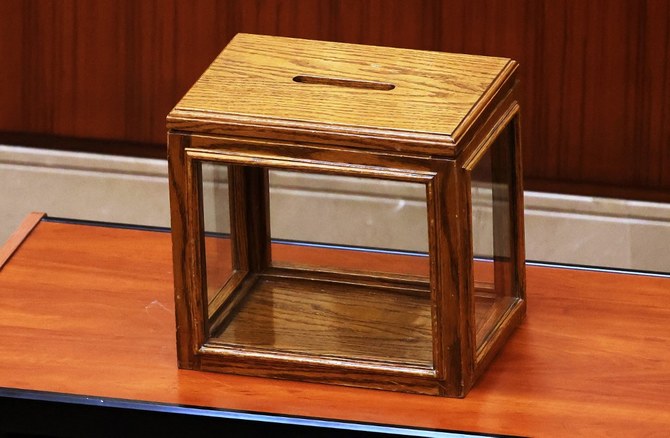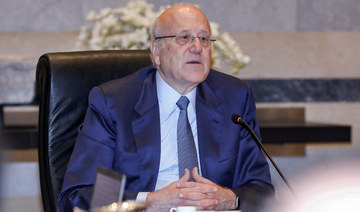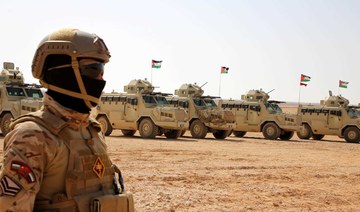BEIRUT: Lebanon’s divided parliament failed to elect a new president on Thursday for a ninth time, with many MPs spoiling their ballots, including one who cast a vote for “Nelson Mandela.”
Hezbollah opponent Michel Moawad won the support of 39 MPs, but fell well short of the required majority.
Parliament Speaker Nabih Berri adjourned the session and announced a new meeting next Thursday, the last session for 2022.
Berri reiterated calls for dialogue among MPs to find a consensus candidate to prevent the process dragging on for months.
Only 105 of 128 MPs showed up for the vote on Thursday and many of them spoilt their ballots.
For the first time, and after eight parliamentary sessions, the number of blank ballots cast by Hezbollah and its allies was equal to the number of votes received by Mouawad.
This tie came against the backdrop of the dispute that arose between Hezbollah and its Christian ally in Lebanon, the Free Patriotic Movement, since the Cabinet session last Monday.
According to a parliamentary observer, the FPM decided to stop casting blank ballots as before and distribute its votes in a calculated manner.
Although the session failed to elect a president, the FPM’s move sent a calculated message to Hezbollah on its open decisions by leaking some of its deputies’ votes in favor of Mouawad, thereby reducing the number of blank votes, the observer said.
The winning candidate requires at least 86 votes in the first round of voting, and an absolute majority of 65 votes in subsequent rounds.
The parliament again failed to hold a second round for loss of quorum after the withdrawal of Hezbollah, the Amal Movement and MPs from other blocs.
Nine MPs voted for “The New Lebanon,” five for Issam Khalifeh and three for the customs chief Badri Daher, who is in detention in relation to the investigation into the Beirut port explosion.
Former deputy Ziad Baroud, legal expert and candidate Salah Honein, and activist and candidate Fawzi Bou Malhab received one vote each.
One vote contained the inscription “For Lebanon,” and another “the agreement.” One vote was cast for “Nelson Mandela,” in addition to canceled votes.
The results of the ballot showed that the FPM deputies amounting to 17 chose their options carefully, as they did not direct all their votes toward Mouawad.
Some votes containing the inscriptions “Mouawad,” “Michel” and “Mouawad Badri Daher” were annulled, among others.
Hezbollah and the FPM deputies did not give any statement after the session, but engaged in a quick side talk.
The Amal Movement MPs avoided discussing the dispute between Hezbollah and the FPM.
MP Ali Hassan Khalil said every party should review its stances, so “we can move forward with this dialogue.”
He said: “We are keen on preserving the relationships between the political forces and we don’t intervene in this matter.
“Everyone should know that the only way to overcome this crisis is through dialogue and communication.”
Mouawad said that “what happened emphasized the solid stances of the blocs voting for me. Some wanted to send a message but they cannot keep doing so till the end. What is happening is disgusting.”
The MP said that he is refusing to get caught up in what he calls “the votes exchange.”
He said: “What is needed is a sovereign president and not a consensual one in the negative sense.”
The dispute between Hezbollah and the FPM has deteriorated to this point for the first time.
A few hours before the parliamentary session, Hezbollah issued a statement in response to Gebran Bassil’s harsh criticism of the party, accusing it of failing to fulfill its promises.
The accusation came against the backdrop of Hezbollah’s participation in the Cabinet’s session seen by the FPM as an illegal way to take over the presidential prerogatives.
Hezbollah affirmed in its statement that the party did not promise anyone that the cabinet won’t convene unless upon the approval of all its components, and therefore, there was no reason for Bassil to consider this move a broken promise.”
The statement added: “Hezbollah didn’t promise the FPM that it won’t attend the Cabinet’s urgent meetings if the ministers of the party (the FPM) boycott it.”
Hezbollah said that “using the language of betrayel and distrust is an unwise and inappropriate behavior.”
Hezbollah said “what Lebanon needs today is communication and dialogue.”
Lebanon has been quick to confirm the safety of Rafik Hariri International Airport and those traveling through it.
Interior Minister Bassam Mawlawi said that they will continue to “combat smuggling at all border crossings in cooperation with all security and military bodies.”
He made the remarks after inspecting the airport security service and meeting with officers on Thursday.
The visit followed a report on Al-Arabiya–Al-Hadath channel that security sources warned that Iran’s Revolutionary Guards were using Iranian airline Meraj flights to transport weapons and equipment to Hezbollah.
Regarding the landing of Iranian airline flights linked to the Revolutionary Guards at Beirut airport, Mawlawi said: “We are keen on enforcing the laws and protecting Lebanon.”
Fadi Al-Hassan, Lebanon’s Civil Aviation director-general, denied the claims.
Al-Hassan said the timing of the “baseless” report harmed the airport’s reputation.
The Meraj company is not affiliated with any party, he said.
The airline operated its first flight to Beirut’s international airport on Nov. 14, and meets all the security requirements, Al-Hassan said.
David Hill, former US assistant secretary of state, met with Berri in other developments.
Hill said in a statement that the situation in Lebanon was not hopeless and that political will is needed to carry out reforms.


























